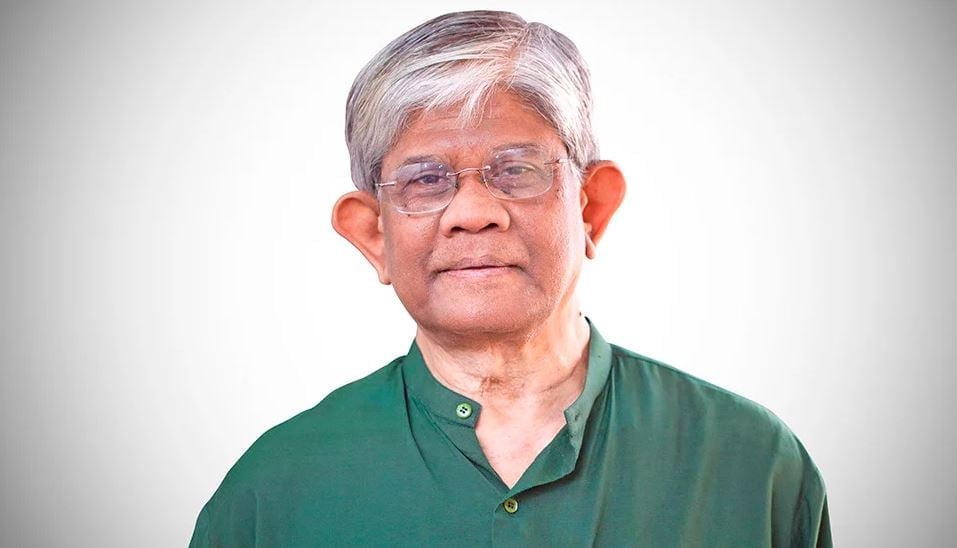News Flash


DHAKA, July 26, 2025 (BSS) - Finance Adviser Dr Salehuddin Ahmed today said that ensuring good governance has become difficult in the country over the years while there is a need to establish countervailing power to ensure 'check and balance'.
"The governance has become difficult over the years. Countervailing power is needed to ensure check and balance," he said.
The Finance Adviser made the remarks while speaking as a guest of honor at a book launch and discussion event for Dr Hossain Zillur Rahman's latest book "Orthoniti, Shashon O Khomota: Japito Jiboner Alekkho" held at the CIRDAP auditorium in the capital.
BNP Secretary General Mirza Fakhrul Islam Alamgir spoke on the occasion as another guest of honour.
Besides, Professor Mahbub Ullah, President of Bangladesh Enterprise Institute M Humayun Kabir, writer and political analyst Altaf Parvez, executive director of CPD Dr Fahmida Khatun, researchers Khandaker Sakhawat Ali, Bhuiyan Asaduzzaman, Prof Abu Ahmed and former NBR Chairman Muhammad Abdul Mazid spoke, among others.
Citing that there was no check and balance on the power of the prime minister or MPs in the country, Dr Salehuddin said, "Without reforms in this sector, no matter how many reforms are made, it won't help. Even political parties need to be reformed," he added.
The Finance Adviser said it is difficult to govern a country like Bangladesh as per his experience of running the Ministry of Finance as part of the government.
"We're trying our best to deliver but can't advance as per our full expectations," he added.
Noting that development is not possible without political arrangements, he said the interim government has been trying to bringing reforms in many sectors, but it is not possible to accomplish a lot during this short period of time.
"But we'll leave behind some footprints so that the successive government can follow those. Long-term and mid-term reforms are not possible during our tenure," he said.
When the interim government assumed office in August last year, the Finance Adviser said, they then found that no other country in the world had fallen in such unrest in the economic front like Bangladesh.
Dr Salehuddin said, the incumbent central bank governor Dr Ahsan H Mansur who is also his student, had said that as per his experiences of travelling to many countries, no other nation in the world had experienced economic debacles like Bangladesh during the last 16 years.
He alleged that the chairmen of different banks had gone abroad looting around 80 percent of the fund...like if Taka 20,000 crore is outstanding of a bank, then Taka 16,000 crore has been looted.
The Finance Adviser said it is estimated that around $35 billion would be required to salvage the banking sector of the country although IMF had initially estimated it around $18 billion.
"It's not easy to recover the country's economy which was on the brink of destruction ...It's also a big challenge for the future," he added.
Over the last 16 years of the previous regime, Dr Salehuddin said all the institutions especially the important ones have been destroyed over the years side by side there were deviations of laws.
Citing that Bangladesh's tax to GDP ratio is still around 7.5 percent, he said this needs to be enhanced as it is much higher in Norway and Sweden.
Regarding the country's LDC graduation, he said the businessmen have long been arguing for not going towards the graduation, "But we need to get prepared."
The Finance Adviser mentioned that there are hardly any well-functioning institutions left.
The system has been damaged, he noted, adding that the same people are still in charge and they haven't changed.
In his speech, Dr Hossain Zillur Rahman said if due attention could not be given simultaneously to economy, governance and power, then it would be difficult to improve the situation.
Prof Mahbub Ullah noted that if the politicians and other concerned do not take proper steps to address the discrimination that was created over the years, then the country would face much bigger disasters.
Citing that Bangladesh is still stuck at low-level equilibrium, CPD executive director Dr Fahmida Khatun alleged that country's institutions became weaker during the past regime since there were no competitive politics.
M Humayun Kabir emphasized that the democratic system should be kept in practice in the country.